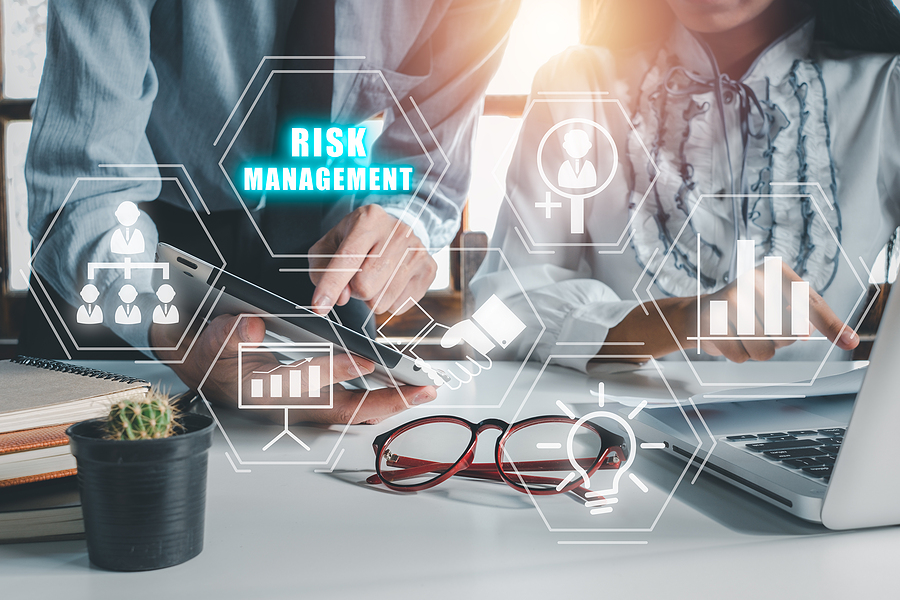Florida nonprofits serve many of the state’s most vulnerable residents. In the course of this work, there is an ongoing risk of violence and assault. By keeping up with the latest trends and best practices, nonprofits can manage this risk while safely carrying out their mission.
Nonprofits Have Been Stretched Thin
The COVID-19 pandemic had a significant impact on the nonprofit sector, and for many nonprofit organizations, the effects of the pandemic are still being felt.
According to a report from the Urban Institute, donation levels increased between 2015 and 2019, but this trend reversed in 2020, with 37% of organizations reporting a decrease in donations. At the same time, the number of part-time workers decreased by 7% and volunteers decreased by 33%.
While resources dwindled, demand surged. A report from Grassi Advisors & Accountants says that more than half of nonprofits experienced increased demand for services.
Some of this increased demand may stem from economic problems caused by the pandemic, but mental and substance use disorders are also likely contributing to the need for more services. According to the American Psychological Association, COVID-19 triggered increased demand for mental health services and led to a rise in the misuse of opioids. Data from the CDC shows that 13% of Americans started or increased substance use in June 2020, while overdoses increased by 18% in the early months of the pandemic.
With fewer resources and more demand, nonprofits have been stretched thin. As a result, risks can be harder to manage, including the risk of violence and assault. If a nonprofit needs to bring on new employees and volunteers, these workers may not have the experience needed to avoid dangerous situations.
When Staff and Volunteers Are the Perpetrators
Nonprofit staff and volunteers are sometimes the victims of violence and assault, but they can also be the perpetrators. Because nonprofits often serve children and vulnerable populations, staff and volunteers with bad intentions can use their positions to conduct abuse. As demand for services increases, the risk of abuse may increase as well.
In one recent example, a 71-year-old man who volunteered at Florida Kids Helping Kids has been arrested on sex battery charges, according to WCJB.
Social and Political Conflict
A poll from the Economist and YouGov found that 66% of Americans think political divisions have gotten worse since the beginning of 2021, and two in five Americans think a civil war is at least somewhat likely to occur in the next 10 years.
As civil unrest and the threat of politically motivated violence increases, volunteers can get caught in the crossfire. In one example, Triad City Beat reported that a volunteer at an abortion clinic in Greensboro, North Carolina, was struck by the car of a protester who reportedly drove straight at her.
Best Practices for Managing Risks
While Florida nonprofits provide essential services, it’s important to manage risks associated with violence and assault. Here are some best practices:
- Screen staff and volunteers who will be working with vulnerable clients. When nonprofits are short-staffed, they may be grateful for anyone who volunteers their time. However, while most volunteers have good intentions, some may have darker motives. A solid screening process can help identify individuals with a history of criminal activity.
- Teach staff and volunteers how to manage emergency situations. Training should include how to spot signs of potential danger, how to de-escalate situations, who to call for help, how to evacuate oneself and others, and what to do in an active shooter scenario.
- Implement strong reporting and documentation policies. Strong reporting and documentation practices can help you identify problems quickly so you can take action to minimize the risk.
- Take appropriate security measures. Make a list of potential exposures and dangerous situations and create loss prevention strategies for each. For example, if nonprofit services involve sending individuals into vulnerable situations, such as conducting home visits, consider what security measures may be necessary.
In addition to the above best practices, Florida nonprofits should also maintain appropriate insurance coverage to shield themselves from liability associated with acts of violence and assault that occur on their premises or in the course of their work.
Need Guidance?
Wilson, Washburn & Forster is a boutique independent insurance agency that has been in business since 1961. We have expertise and connections in the nonprofit sector. You will find that our experience, claims handling, service, and community commitment is unrivaled.
Contact us today at 786-454-8384 for a complimentary analysis of your current insurance program by an insurance specialist in this field.








Leave a Reply